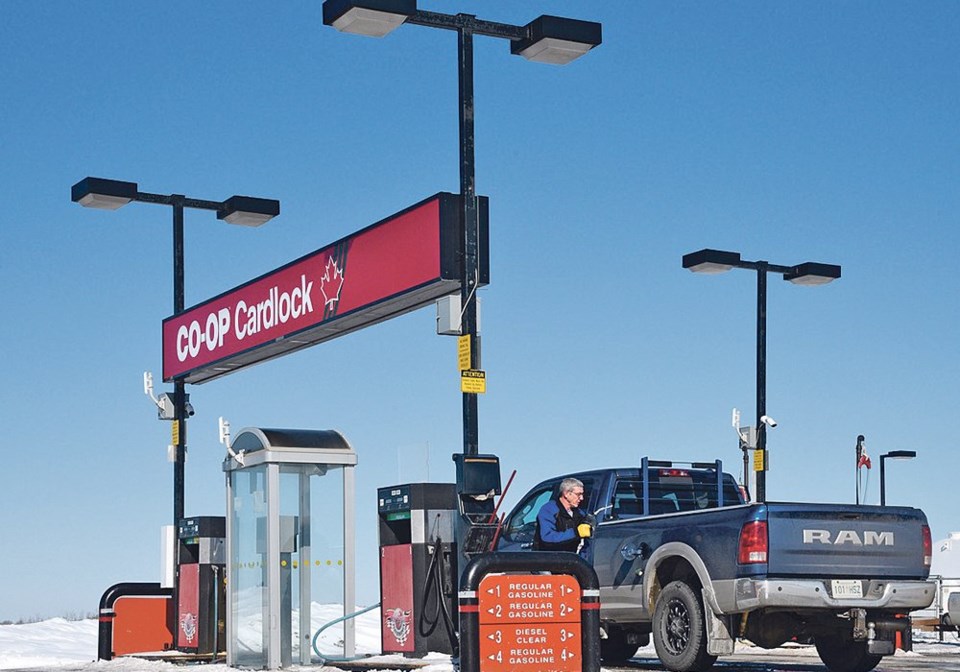WESTERN PRODUCER — If demand builds, supply will come.
That’s a basic form of faith that applies to most markets. Most of us hold that faith in greater or lesser measures. But it’s dangerous to apply that sort of thinking to medium-term production shortfalls in critical commodities, as some are doing today.
You can’t just create commodities that are rare, hard to process, and expensive and complicated to extract. You can build the demand, but you can’t just create the commodity. It’s got to come from somewhere.
I’m thinking about this because of a conversation I recently had with a couple of intelligent, well-educated friends. They were remarking upon the enormous rise in gasoline prices and saying this would lead to a gigantic upsurge in electrical vehicle sales and production.
I said I thought it would certainly lead to a surge in demand for electrical vehicles, but that production can’t just jump overnight. And in terms of electrical vehicles taking over the roads, which they thought would happen in five years, I said I thought it would take 15 to 20 years.
They seemed bemused at my skepticism that electrification would happen quickly and noted that if there was lots of demand, supplies and capacity would appear.
I said it would take years for all the new mines for lithium, cobalt, copper, nickel and other minerals essential to electrical car batteries to be built. And just building out the charging network within and between cities would take years before most people would feel comfortable converting their personal transportation to a vehicle dependent upon readily available fast charging stations.
These suggestions did not compute with my friends. If there’s enough demand, they repeated, the market would supply the commodities and the capacity.
I persevered in noting the challenges with getting any new commodity project approved in a country like Canada, where new resource extraction has become an excruciating proposition, but my friends shook their heads at my lack of belief in the power of the market.
For what it’s worth, General Motors says it plans to build nothing but electrical cars by 2035, and Ford expects to sell nothing but electrical in Europe by 2030, so they’ve got some faith too.
Boosting commodity production isn’t like creating new manufacturing capacity. It’s a fundamentally different thing, but most people don’t understand that. It isn’t just a matter of money and will.
This is where a lot of people might experience some unpleasant learning in the next few months. The Russian invasion of Ukraine is stranding critical commodity supplies, shutting down production and blocking investment in vital commodity producing regions right when we need those supplies most.
Farmers are seeing that directly in high crop prices already, but all sorts of things might end up being weirdly affected by the ravaging of Ukraine and the western world’s reaction against Russia.
The markets can have a miraculous-seeming ability to arbitrage and substitute commodities when normal production and flows get interrupted, but as we’ve seen from the supply chain woes created by the pandemic, they can’t actually create miracles.
Once all the residual stocks of various commodities are pulled out by sky-high prices and those same high prices spur whatever residual underused capacity remains, things just run out long before new production can come online. Those who can’t afford to pay for them won’t get them, at all.
With food, that can cause hunger. Hopefully, the advanced world will be decent enough to be able to avert starvation in large areas of the globe, although today’s crop prices mean our usual agencies of aid won’t be able to do nearly as much to help unless they get a lot of extra contributions. (.)
Other commodities won’t be life and death matters, but their tightness might mean you can’t get critical spare parts for farm machinery when you need it.
Weird little supply glitches are already hitting agriculture. Apparently filters and other engine parts are very hard to get right now. Does that have anything to do with commodity shortages, or is it just a product of chronically malfunctioning supply chains? A lot of these situations are a bit of both.
Filters might not be in short supply due to commodity tightness, but other components could become unavailable if something or other runs out.
Don’t try to rent a car these days unless you are willing to end up with something you don’t really want and are willing to part with a bunch of money for the honour. Shortages of microchips and other components have squeezed auto production for a couple of years now.
When it comes to electrical vehicles, the world has more than enough reserves of critical minerals to build us all the batteries we need, eventually.
But with much of the world’s potential production coming from geopolitically insecure sources (60 percent of cobalt is in the Democratic Republic of Congo) or in countries where mining projects are getting increasingly hard to get approved (current lithium projects in Chile, Serbia and Canada have run into opposition), having those potential supplies to reach our ambitious green-energy targets is anything but assured.
If the Russian war against Ukraine is followed, in a few years, by a Chinese move against Taiwan, commodity disruptions and dislocations could get a lot worse.
Eventually, the world’s markets find ways around shortfalls. High prices, substitution and new production do the trick, one way or another.
But there are no commodity production miracles waiting to happen. We can have faith that commodity markets will eventually find their way through problems, but we shouldn’t have blind faith and be expecting miracles to fix anything fast.




